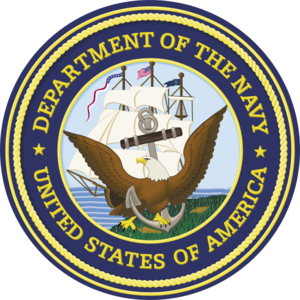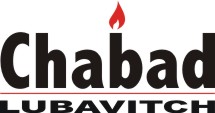1775
Jump to navigation
Jump to search
1765 < 1766 < 1767 < 1768 < 1769 < 1770 < 1771 <1772 < 1773 < 1774 < 1775 > 1776 > 1777 > 1778 > 1779 > 1780 > 1781 > 1782 > 1783 > 1784 > 1785
 | |
| The formation of the US Navy |
Summary
Human knowledge and mastery over nature advances when James Watt builds a successful prototype of a steam engine, and a scientific expedition continues as Captain James Cook claims the South Georgia and South Sandwich Islands in the south Atlantic Ocean for Britain. Nature's power over humanity is dramatically demonstrated when the Independence Hurricane (August 29 – September 13) devastates the east coast of North America, killing 4,173, and when, on the western side of the North American continent, Tseax Cone erupts in the future British Columbia, as well as when a smallpox epidemic begins in New England. Smallpox was then cured by Edward Jenner.
January–June
- January – The Habsburg Monarchy forces the Ottoman Empire to cede Bukovina to its rule.
- January 5 – Wolfgang Amadeus Mozart finishes a Sonata for Keyboard in C.
- January 17 – Second voyage of James Cook: Captain James Cook takes possession of South Georgia for the Kingdom of Great Britain.
- February 9 – American Revolution: The Parliament of Great Britain declares the Province of Massachusetts Bay to be in rebellion.
- February 15 – Pope Pius VI succeeds Pope Clement XIV as the 250th pope.
- February 26 – The British East India Company factory on Balambangan Island is destroyed by [[Piracy in the Sulu Sea|Moro pirates
- March 6 – Raghunathrao, Peshwa of the Maratha Empire in India, signs the Treaty of Surat with the British Governor-General Warren Hastings in Bombay ceding the territories of Salsette and Bassein to the British East India Company along with part of the revenues from Surat and Bharuch districts in return for military assistance. This leads to the First Anglo-Maratha War fought between the British and the Marathas, ending with the Treaty of Salbai in 1782.
- March 17 – Catherine the Great of Russia issues a manifesto prohibiting freed serfs from being returned to serfdom.
- March 23 – American Revolution: Patrick Henry, a delegate to the Second Virginia Convention after the Virginia House of Burgesses was disbanded by the Royal Governor, delivers his "Give me Liberty, or give me Death!" speech at St. John's Church in Richmond, Virginia.
- April 18 – American Revolution: Paul Revere and William Dawes, instructed by Dr. Joseph Warren, ride from Boston to Lexington to warn John Hancock and Sam Adams that British forces are coming to take them prisoner and to seize colonial weapons and ammunition in Concord.
- April 19 – American Revolution: Hostility between Britain and its American colonies explodes into bloodshed at the Battles of Lexington and Concord[1] igniting the American Revolution.
- May 10 - American Revolution: The Second Continental Congress meets, elects John Hancock president, raises the Continental Army under George Washington as commander and authorizes the colonies to adopt their own constitutions.
- May 17 – American Revolution: The Continental Congress bans trade with Canada.
- June 11 – Battle of Machias, the first naval engagement of the American Revolutionary War.
- June 12 – American Revolution:
- The British forces offer a pardon to all colonists who lay down their arms.
- Action by citizens of Machias, Maine, in capturing British ships recognises the existence of a United States Merchant Marine.
- June 14 – American Revolution: The Continental Congress names George Washington as commander of the Continental Army.
- June 16 – Post of Chief Engineer of the Continental Army created.
- June 17 – American Revolution: Two months into the colonial siege of Boston, British open fire on Breed's Hill on Charles Town Peninsula. After 3 charges, the British take the hill in the misnamed Battle of Bunker Hill.
- June 19 – Post of Commanding General was created by the Continental Congress.
July–December
- July 3 – American Revolution: George Washington takes command of the 17,000-man Continental Army at Cambridge.
- July 5 – American Revolution: The Continental Congress sends the Olive Branch Petition, hoping for a reconciliation.
- July 6 – American Revolution: The Continental Congress issues Declaration of the Causes and Necessity of Taking Up Arms, which contains the words: "Our cause is just. Our union is perfect... being with one mind resolved to die freemen rather than to live slaves...".
- July 26 – The Second Continental Congress appoints Benjamin Franklin to be the first Postmaster General of what later becomes the United States Post Office Department.
- July 30 – Second voyage of James Cook: HMS Resolution anchors off the south coast of England, Captain Cook having completed the first east-about global circumnavigation.
- August 18 – Tucson is founded.
- August 21 – American Revolution – Siege of Fort St. Jean: American rebels launch an invasion of Canada.
- August 23 – American Revolution: Refusing to even look at the Olive Branch Petition, King George issues a Proclamation of Rebellion against the American colonies.
- August 29 – September 12 – The Independence Hurricane from South Carolina to Nova Scotia kills 4,170, mostly fishermen and sailors.
- October – The Sayre Plotters attempt to kidnap George III of the United Kingdom.
- October 13 – American Revolution: The Continental Congress orders the establishment of the Continental Navy (later the United States Navy).
- October 26 – American Revolution: George III announces to Parliament that the American colonies are in an uprising and must be dealt with accordingly.
- November – American Revolution: Colonel Richard Richardson's South Carolina revolutionaries march through Ninety-Six District in what becomes known as the Snow Campaign, effectively ending all major support for the Loyalist cause in the backcountry of South Carolina.
- November 10 – American Revolution: The Continental Congress passes a resolution creating the Continental Marines to serve as landing troops for the recently created Continental Navy (the Marines are disbanded at end of the war in April 1783 but reformed on July 11, 1798 as the United States Marine Corps).
- November 13 – American Revolution – Battle of Montreal: American forces under Brigadier General Richard Montgomery capture Montreal. British General Guy Carleton escapes to Quebec.
- November 17 – John Murray, 4th Earl of Dunmore offers freedom to slaves who join the loyalist army, thus losing the support of most planters, who see slaves as their vital livelihood.
- November 17 – The city of Kuopio, Finland (belonging to Sweden at this time) is founded by King Gustav III of Sweden.
- December 5 – American Revolution: Henry Knox begins his journey to Cambridge, Massachusetts with the artillery that has been captured from Fort Ticonderoga.
- December 31 – American Revolution: Battle of Quebec: British forces repulse an attack by Continental Army generals Richard Montgomery and Benedict Arnold at Quebec.
Date unknown
- Industrial Revolution in Great Britain.
- James Watt's 1769 steam engine patent is extended to June 1800 by Act of Parliament and the first engines are built under it.
- John Wilkinson invents and patents a new kind of boring machine.
- Catherine the Great decrees a Statute for the Administration of the Provinces of the Russian Empire dividing the country into provinces and districts for efficient government.
- A smallpox epidemic begins in New England.
- Tseax Cone in northwestern British Columbia erupts.
- Typhoon Liengkieki devastates the Pacific atoll of Pingelap.
- Wolfgang Amadeus Mozart writes his five violin concertos in Salzburg at about this date.
Event
| Event | Start | End | Description |
|---|---|---|---|
| American War of Independence | 19 April 1775 | 3 September 1783 |
New Groups
| Group | Image | Type | Description |
|---|---|---|---|
| Chabad Lubavitch |  | Religion | A Hasidic movement of Orthodox Judaism |
| Clausthal Technical University |  | Ranked among the Top German universities in engineering | |
| US/Navy |  |
Many thanks to our Patrons who cover ~2/3 of our hosting bill. Please join them if you can.
References
- ↑ http://www.britannica.com/ebi/article-9275454 page=454 quote=The American Revolution began on April 19, 1775, with the Battles of Lexington and Concord.